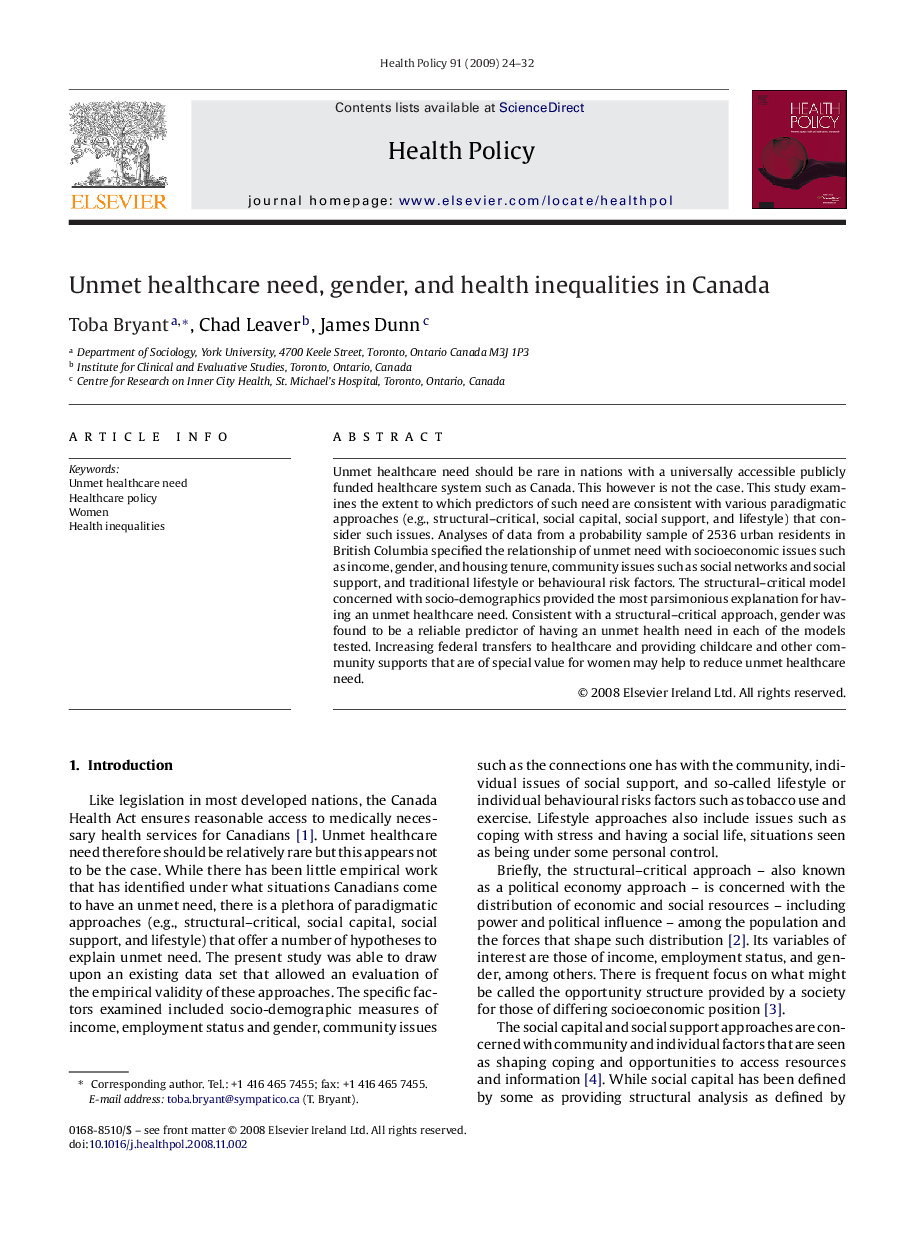| Article ID | Journal | Published Year | Pages | File Type |
|---|---|---|---|---|
| 4198547 | Health Policy | 2009 | 9 Pages |
Unmet healthcare need should be rare in nations with a universally accessible publicly funded healthcare system such as Canada. This however is not the case. This study examines the extent to which predictors of such need are consistent with various paradigmatic approaches (e.g., structural–critical, social capital, social support, and lifestyle) that consider such issues. Analyses of data from a probability sample of 2536 urban residents in British Columbia specified the relationship of unmet need with socioeconomic issues such as income, gender, and housing tenure, community issues such as social networks and social support, and traditional lifestyle or behavioural risk factors. The structural–critical model concerned with socio-demographics provided the most parsimonious explanation for having an unmet healthcare need. Consistent with a structural–critical approach, gender was found to be a reliable predictor of having an unmet health need in each of the models tested. Increasing federal transfers to healthcare and providing childcare and other community supports that are of special value for women may help to reduce unmet healthcare need.
